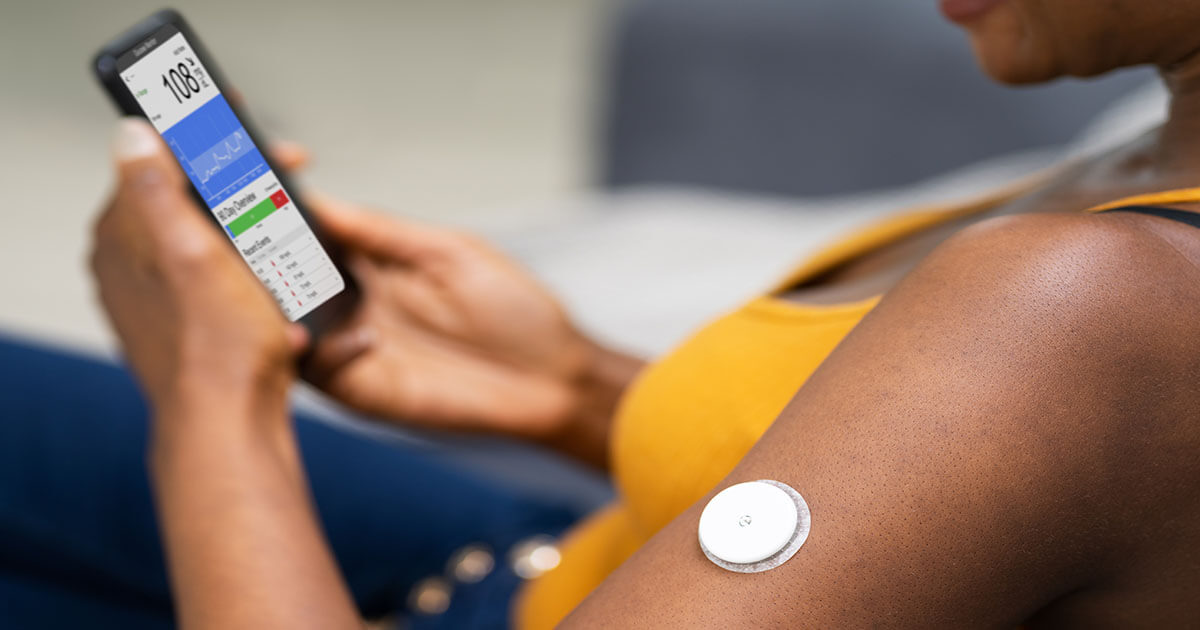Best Improvement Programme for Children and Young People
In this category, the judges were looking for initiatives aimed at children and young people with diabetes and their families. Involvement of relevant stakeholders in the initiative development was a must, as well as evidence of sustainability and transferability to other organisations.
Winner: Managing type 1 diabetes in schools DVD
Submitted on behalf of Calderdale and Huddersfield Paediatric Diabetes Team by Rose Hagreen, Marie Whiteley, Nancy Harrison, Alison Oversby, Sarah Schorah and Jean Hayman
Calderdale and Huddersfield paediatric diabetes team has developed a DVD for primary and secondary school staff to enhance existing service provision for diabetes in school, which is to be used as a tool to deliver the generic aspects of diabetes management in line with Diabetes UK guidelines.
The DVD is unique having been developed with young people who have diabetes, as they are the ones who truly understand the day-to-day issues they face managing their diabetes in school. Information is delivered throughout the DVD by young people in a fun but credible way, as they speak with an openness and honesty that is unique to children and young people. The completed DVD lasts approximately 30 minutes and addresses the treatment of hypo- and hyperglycaemia, injection technique, insulin pumps, sports and exercise.
The DVD delivers clear messages that young people with diabetes are all individual and manage their diabetes in different ways, and that diabetes is not their defining feature. They are young people foremost who, in addition, have diabetes and, therefore, should not be made to feel different.
Highly commended: Hillingdon Hospital paediatric diabetes innovative school multidisciplinary team clinics
The Children and Young People with Diabetes Team (Jaikumar Ganapathi, Paediatric Consultant; Phoebe Kurian, Paediatric Diabetes Specialist Nurse: Sandra Ross, Dietitian; Leah Brennan, Psychologist), The Hillingdon Hospital NHS Foundation Trust
In the UK, children and young people with type 1 diabetes (CYPD) come to hospital clinics to see their multidisciplinary teams (MDT) four times a year.
During 2012/2013, attendance rates for these appointments for CYPD in secondary school were poor at Hillingdon Hospital, Uxbridge. To attend hospital clinic, CYPD spend half or whole days away from school, and parents take time off work and struggle with parking to accompany them. Hospital settings are also known to often add to the perceived burden of a chronic illness.
To address these issues and ultimately improve attendance and engagement with CYPD, we took the MDT clinic to schools. Four schools were chosen that had five or more CYPD and free classrooms were used to carry out appointments. CYPD missed only 30 minutes of class time to attend school clinics, and then did not need to come to hospital clinics. Dietitians were able to visit school canteens and tailor carbohydrate counting advice. Engagement with CYPD was ultimately higher. This year, we have successful psychologist-led therapy groups in the same schools for CYPD.
There were no missed appointments in the period 2013/2014, and there was excellent patient satisfaction with the school clinic model (29 out of 30 CYPD and all parents preferred school clinics over hospital clinics). Schools benefited from training and felt more supported.
Commended: Bolus calculator blood glucose meters from diagnosis
Submitted on behalf of NHS Tayside, Ninewells Hospital by Heather Thom
The team at Tayside explored insulin adjustment for blood glucose and carbohydrate meal content from “day 1” of diabetes diagnosis in a newly designed home-based education programme.
Previously, carb-counting was not introduced until >3 months after diagnosis, but in the new programme, carb-counting started from day 1 and was used alongside multiple-daily injections supported with a bolus calculator blood glucose meter. HbA1c data obtained in the first year of diagnosis in individuals who received the new patient education programme were compared to HbA1c data in individuals managed from 2001 to 2011.
Comparisons have shown that in the first year, mean monthly HbA1c was significantly lower in six out of the 12 months among those who carb counted from diagnosis compared to data collected from individuals managed between 2001 and 2011. Current data is encouraging and suggests that using this method from diagnosis may optimise glycaemic control in the first year of diagnosis.
Other successes on the night
Diabetes care for children and young people had a successful night among the other QiC awards. Projects relevant to paediatric care were highlighted in six other categories, as well as receiving a Judge’s Special Award.
Winner: Creating an online one-stop advice and information hub
The Children and Young People’s Diabetes Service and the Communications Unit, University College London Hospitals NHS Foundation Trust
The microsite launched in 2013 was created to bring together expert advice and information in a central online “hub” to support young people with diabetes. We developed a website based on feedback from parents and carers of young people to determine what was missing from existing resources. Our aim was to fill that gap.
Based on their feedback, we developed a website: www.uclh.nhs.uk/t1.
The microsite has information on living with diabetes (including nutrition, exercise and managing school days); managing diabetes (which explains the medical issues relating to diabetes and what they mean); and dealing with illness (which contains fact sheets for children and young people who need daily injections or use an insulin pump).
There is an interactive element to the site with four “how to guides” which give practical demonstrations on how to carry out key tasks, like giving an insulin injection. There is a blog where members of the clinical team share their views, a section on latest research (including how to get involved in trials) and a link to an established parents’ group on Facebook.
Feedback from parents and carers of children and young people has been overwhelmingly positive. The site aims to offer something for all children and young people with diabetes, their families and carers, wherever they are on their individual diabetes journey.
Winner: Carbs & Cals books, app and teaching resources
Chris Cheyette and Yello Balolia, Chello Publishing Limited
Educating people with diabetes on how to calculate the carbohydrate content in their food and drink can be a complex process. Individuals need to understand the different food groups, have knowledge of foods that are rapidly or slowly absorbed, be able to read food labels and also be able to accurately estimate, by sight or by weight, the amount of carbohydrate contained in their food.
The Carbs & Cals resources came about through a realisation that many people with diabetes struggle with numeracy when calculating carbohydrate and that many children and adults fail to engage with the process. Carbs & Cals specialises in creating books and smartphone apps for diabetes management, weight loss, portion control and general healthy eating.
These highly visual, easy-to-use products contain over 3500 photos of popular food and drink items (in up to six portion sizes for each food item) with the carbohydrate, calorie, protein, fat and saturated fat values clearly displayed above each photo.
At a glance, people can quickly gauge the amount of carbs in the food and drink they consume. It provides an excellent resource for people with type 1, type 2 or gestational diabetes. It also allows people to quickly understand about portion control and enables them to make informed choices about the food and drink they consume.
For more information about Carbs & Cals, visit www.carbsandcals.com.
Commended: Patient-focused paediatric dietetic annual review
Submitted on behalf of the Great North Children’s Hospital, Royal Victoria Infirmary by Hilary Hartley, Paediatric Dietitian
It is important to develop a working relationship between children and young people in the paediatric clinic and the dietitian so that they can be helped to understand the central role of diet in ensuring good health and good glycaemic control. However, the team felt the standard dietetic annual review, which is now a requirement for the Best Practice Tariff, was not a meaningful experience for many children and young people and that the dietitian’s role was not always fully understood.
In response, a plan was made to deliver the dietetic annual review in a systematic manner, using topics that would be both educational and interesting for children and young people, while providing an assessment of their overall dietary intake at the same time. By using a checklist, well-established nutritional tools and the “Goals of Diabetes” education programme, the consultation has become more informative for all those involved.
Highly commended: The DECIDE Study: Delivering Early Care in Diabetes Evaluation
Lesley Lowes on behalf of the DECIDE Study Team, Cardiff University
What is the best approach for the management of type 1 diabetes in clinically well children at diagnosis? This study aimed to answer this question. Using the largest sample of children with diabetes ever recruited at diagnosis in the UK, the team investigated the difference between home and hospital management for the delivery of early care in diabetes. The primary outcome was HbA1c at 24 months follow-up while secondary outcomes included biopsychosocial aspects such as coping, anxiety, quality of life, diabetes knowledge, social activities, satisfaction and the total economic costs. Qualitative interviews were carried out with healthcare professionals, parents and children.
In total, 203 newly diagnosed children (aged 0–17 years) from eight UK centres were randomised to receive early care at home (n=101) or hospital (n=102). After 2 years, there was no significant difference in mean HbA1c between home (72.1 mmol/mol [8.7%]) and hospital (72.6 mmol/mol [8.8%]), nor for most secondary outcomes. Initiation costs (days 0–3 post-diagnosis) were significantly higher in the hospital setting due to the indirect hospital-related costs of children being in-patients. Direct diabetes-specific resource use was similar between the home and hospital setting at initiation and during 2-year follow-up.
Many children and parents initially desired the home setting, but, in retrospect, they preferred whichever arm they had been randomised to. Most nurses preferred home management despite the logistical challenges. Consultants had less contact with those who were managed at home, so experienced challenges building a rapport with these children. No children in the home arm were re-admitted to hospital in the first 4 days.
Hospital management of type 1 diabetes in clinically well children at diagnosis significantly increases NHS costs, with no difference in glycaemic control or quality of life over the first 24 months when compared to home management. The results provided high quality evidence to inform decision-making concerning the environment for treatment initiation in newly diagnosed diabetes in children and young people.
Highly commended: JUST DUK 1T – a resource by young people with type 1 diabetes, for young people with type 1 diabetes
Submitted by Dani Cochrane, Youth Development Worker, and Laura Sharpe, Project Development Coordinator for Young People, on behalf of the team and Diabetes Scotland
The aim of the JUST DUK 1T project was to create an online resource for young people living with type 1 diabetes in Scotland, which was accessible, relevant and widely usable. A group of 14 young people aged 16–25 years old with type 1 diabetes were recruited from across Scotland to support the development of this resource. The group know that living with diabetes can be a daunting and isolating experience and wanted the resource to take a realistic yet authentic tone towards educating and supporting their peers, whilst touching on the inspirational and positive stories they could share. The resource created is a website called www.JUSTDUK1T.org.uk which is responsive to the needs of young people, providing them with engaging content, useful tips and hints, real-life stories, and a managed online community through social media. The group have been able to connect with young people with type 1 diabetes from across the country, creating an open dialogue, and providing a wide range of support that is distinct from what they receive from clinical care.
Commended: A new formula for better management of type 1 diabetes
Submitted on behalf of Samir Wassouf on behalf of the Paediatric Diabetes Home Care team of the Imperial College Healthcare NHS Trust
The DCCT (Diabetes Control and Complications Trial) followed by EDIC (Epidemiology of Diabetes intervention and Complication) trial have shown that intensive blood glucose control significantly reduces the risk of morbidity and mortality even with small decreases in the HbA1c.
Close control of blood glucose levels is supported by formulae to calculate insulin sensitivity factor (ISF) and carbohydrate–insulin ratio (CIR). These formulae were created at a time when type 1 diabetes was managed with rigidity on twice- or even once-daily injections of insulin. These formulae also rely on knowing the total daily dose of insulin, which, in the modern era, is very difficult to calculate. The total daily dose (TDD) can significantly vary from day to day depending on carbohydrate consumption.
Our 0.12 formula supports tight control of blood glucose in the current context of flexible insulin dosage. Our new formula is developed from physiological principles. It uses the body weight (0.12×body weight) to calculate the Glucose Sensitivity Factor (GSF), a term we use to indicate the amount of glucose needed to raise the blood sugar by 1 mmol/L. This enables us to accurately specify the amount of carbohydrate needed to correct an episode of hypoglycaemia for an individual and to calculate a patient-specific ISF and CIR.
Clinical studies on the current formulae recognise the relationship between ISF and CIR. We have been able to establish a straightforward link between GSF, ISF and CIR through a simple equation: GSF×ISF=CIR. This formula has proved to be tremendously helpful in balancing and adjusting blood glucose regulation for the people we see with diabetes.
Commended: Outreach Insulin Pump Team, North East Thames Paediatric Diabetes Network
Submitted on behalf of Barts Health NHS Trust by Sonja Allen and Jo Dalton
The Outreach Insulin Pump Team was designed to increase access to insulin pump therapy in the North East Thames Paediatric Diabetes Network. It was launched in September 2012 after securing funding from Barts Charity. At the time there were approximately 850–900 children and young people (CYP) with type 1 diabetes in the network but only 73 CYP were using insulin pump therapy. Local teams felt that up to 50% of their CYP would benefit from insulin pump therapy; however, staffing levels demonstrated that it would be impossible to accomplish this level of pump initiation without an external support. The charity money enabled 1 whole time equivalent (wte) paediatric diabetes specialist nurse, 0.9 wte paediatric diabetes dietitian and 0.4 wte clinical psychologist to be appointed to the Outreach Pump Team for a 3-year fixed-term period. The role of the three professionals was to support local teams through pump starts, including pre-assessment of diabetes knowledge and skills, pump education and short-term follow-up. Following a 1-month post-pump start review within the local centres, the CYP would continue their diabetes clinical care with their own local service. The Outreach Pump Team is a solution for smaller services so that staff can increase their experience and competence in insulin pump therapy without having to transfer CYP with diabetes to other centres.
Commended: A national protocol and care plan for the management of diabetes in schools
East of England Children and Young People’s Diabetes Network & North West Children and Young People’s Diabetes Network
Currently in the UK, children and young people (CYP) with diabetes receive variable provision of care and support in the school setting. There are concerns that this impacts on the young person’s glycaemic control, their quality of life, and their educational performance and outcome. Whilst various guidelines exist in some schools, none have been developed based on a consensus, multi-agency approach and none have been regionally or nationally adopted.
Our aims and objectives were to develop a comprehensive, consensus-based guideline and care plan that would inform education providers about diabetes and provide a framework for the best practice management and support of CYP in schools. This was achieved by convening a series of multi-agency stakeholders, including clinicians, patients, families, teachers, local authority and charity representatives, and workshops were established in regional CYP diabetes networks.
The final document provides specific guidance for all key parties regarding their roles and responsibilities in the day-to-day care of children with diabetes, including their legal (indemnity/liability) obligations and their approach to safe diabetes care in a number of school-related activities (e.g. sports, school trips). It also provides a care plan that can be used electronically by healthcare professionals and sent to schools across the country. The judges commented that they would like to hear more about the results and outcomes following the assessment taking place in November 2014.
All the winners from 2014 can be found at: www.qualityincare.org/awards/diabetes/qic_diabetes_results.





NHSEI National Clinical Lead for Diabetes in Children and Young People, Fulya Mehta, outlines the areas of focus for improving paediatric diabetes care.
16 Nov 2022